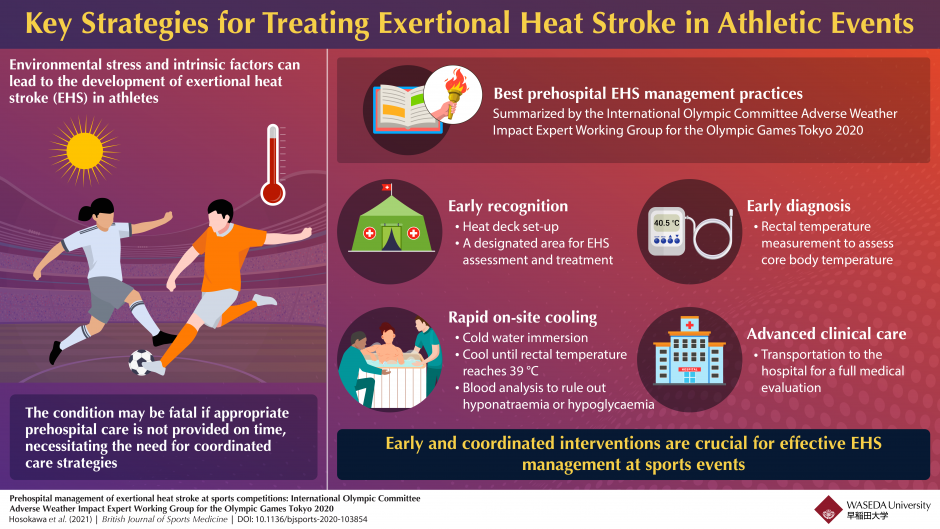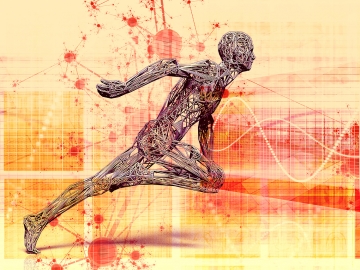Guidelines to Manage Exertional Heat Stroke
Athletes, when challenged by intrinsic factors and environmental stresses, can experience a serious condition known as exertional heat stroke (EHS). EHS occurs when the core body temperature rises above 40.5 degrees, along with neurological impairments due to exercise-induced hyperthermia. The condition may even be fatal in cases where proper prehospital care is not provided on time. In fact, EHS is one of the leading causes of sudden death in sports.
Currently, limited sporting events prepare and implement sufficient systems to treat EHS, necessitating the need to establish coordinated care strategies.
To this end, the members of the International Olympic Committee Adverse Weather Impact Expert Working Group for the Olympic Games Tokyo 2020 outlined the steps to be taken to identify, treat, and manage athletes with suspected EHS using the Olympic Games as an example.
The guidelines suggest that for early detection, medical personnel with an understanding of medical services and EHS management should be present. It also recommends setting up a special area called a “heat deck” near the medical tent at the sports events, where athletes suspected of having EHS can undergo evaluations. Next, for early diagnosis, the core temperature of the athletes must be assessed using a rectal thermometer. Athletes with confirmed EHS should be cooled using whole-body cold-water immersion. During cooling, they should also undergo a blood sodium and blood glucose evaluation to identify potential hyponatremia and hypoglycemia, which may also cause neurological impairments. The immersion should continue until the rectal temperature reaches 39°C, after which they should be taken out from the cold water. Upon maintaining a post-cooling core body temperature for at least 15 minutes, the medical team should initiate the post-treatment process, wherein the athletes with EHS must be transported to a designated hospital for follow-up assessments.
With the increasing global warming, these strategies may not only be helpful for athletes but also for the workforce engaged in outdoor physical labor.
Link to the original journal article:
https://bjsm.bmj.com/content/55/24/1405
About the author:
Dr. Yuri Hosokawa is an Associate Professor at Waseda University’s Faculty of Sport Sciences and was part of the panel of experts tasked with establishing medical protocols for the Olympic Games in Tokyo in 2020. She is a pioneering figure in sports safety research in Japan, and a leading expert on exertional heat stroke. Her work is focused on developing heat illness prevention guidelines and her contributions extend beyond sports, impacting occupational settings like firefighting and coast guards.









